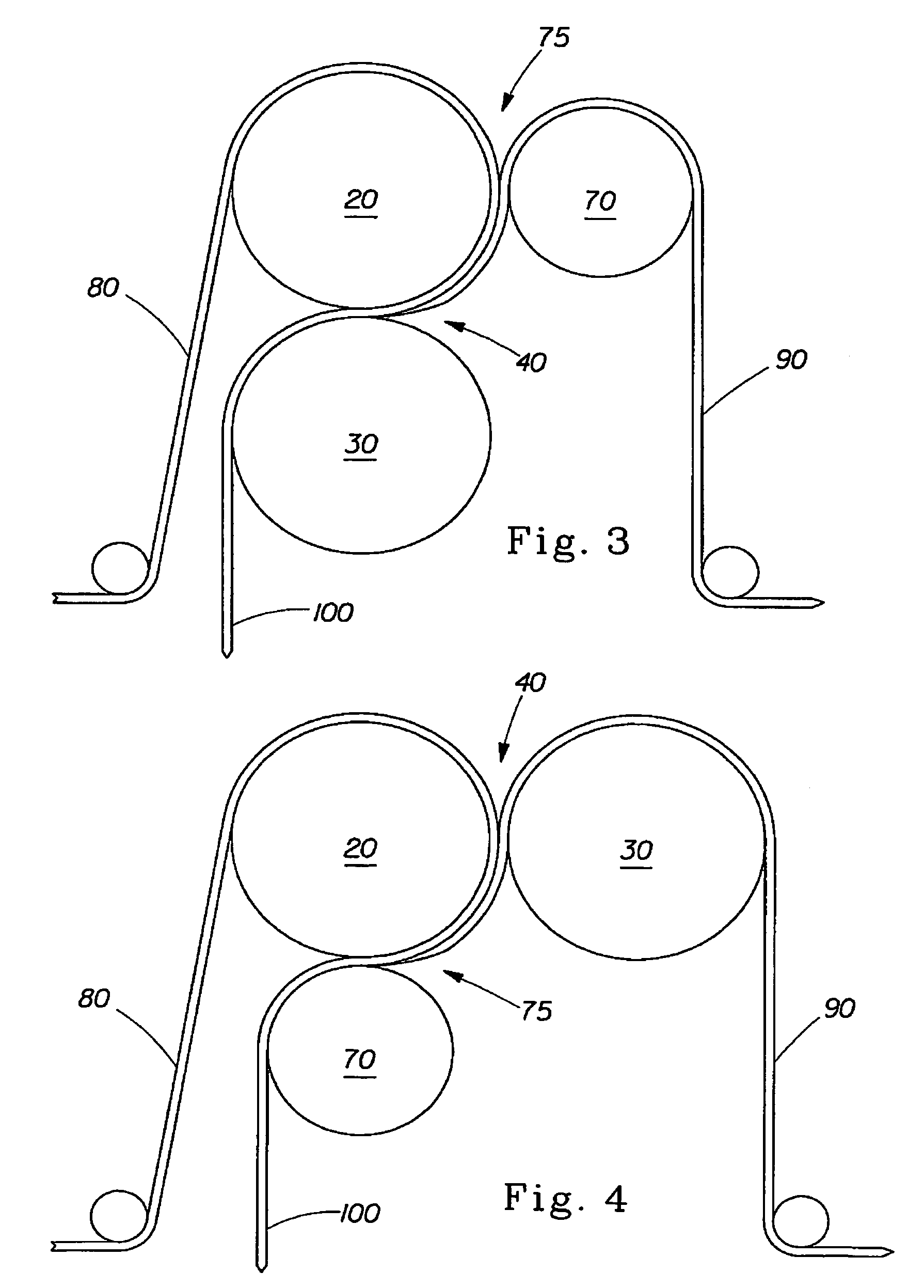Embossing process including discrete and linear embossing elements
a technology of embossing elements and embossing process, which is applied in the field of embossing process including discrete and linear embossing elements, can solve the problems of reducing the quilted appearance and/or thickness benefit of the embossing, and affecting the effect of embossing
- Summary
- Abstract
- Description
- Claims
- Application Information
AI Technical Summary
Benefits of technology
Problems solved by technology
Method used
Image
Examples
example 1
[0081]One fibrous structure useful in achieving the embossed paper product is the through-air-dried (TAD), differential density structure described in U.S. Pat. No. 4,528,239. Such a structure may be formed by the following process.
[0082]A Fourdrinier, through-air-dried papermaking machine is used in the practice of this invention. A slurry of papermaking fibers is pumped to the headbox at a consistency of about 0.15%. The slurry consists of about 55% Northern Softwood Kraft fibers, about 30% unrefined Eucalyptus fibers and about 15% repulped product broke. The fiber slurry contains a cationic polyamine-epichlorohydrin wet burst strength resin at a concentration of about 10.0 kg per metric ton of dry fiber, and carboxymethyl cellulose at a concentration of about 3.5 kg per metric ton of dry fiber.
[0083]Dewatering occurs through the Fourdrinier wire and is assisted by vacuum boxes. The wire is of a configuration having 41.7 machine direction and 42.5 cross direction filaments per cm,...
example 2
[0088]In another embodiment of the embossed paper products, two separate paper plies are made from the paper making process of Example 1. The two plies are then combined and embossed together by the deep-nested embossing process of Example 1. The resulting paper has an embossment height of greater than about 1450 μM, a finished product wet burst strength greater than about 70% of its unembossed wet burst strength.
example 3
[0089]In another embodiment, three separate paper plies are made from the paper making process of Example 1. Two of the plies are deep-nested embossed by the deep-nested embossing process of the Example 1. The three plies of tissue paper are then combined in a standard converting process such that the two embossed plies are the respective outer plies and the unembossed ply in the inner ply of the product. The resulting paper has an embossment height of greater than about 1450 μM, a finished product wet burst strength greater than about 70% of its unembossed wet burst strength.
PUM
| Property | Measurement | Unit |
|---|---|---|
| area | aaaaa | aaaaa |
| area | aaaaa | aaaaa |
| total area | aaaaa | aaaaa |
Abstract
Description
Claims
Application Information
 Login to View More
Login to View More - R&D
- Intellectual Property
- Life Sciences
- Materials
- Tech Scout
- Unparalleled Data Quality
- Higher Quality Content
- 60% Fewer Hallucinations
Browse by: Latest US Patents, China's latest patents, Technical Efficacy Thesaurus, Application Domain, Technology Topic, Popular Technical Reports.
© 2025 PatSnap. All rights reserved.Legal|Privacy policy|Modern Slavery Act Transparency Statement|Sitemap|About US| Contact US: help@patsnap.com



